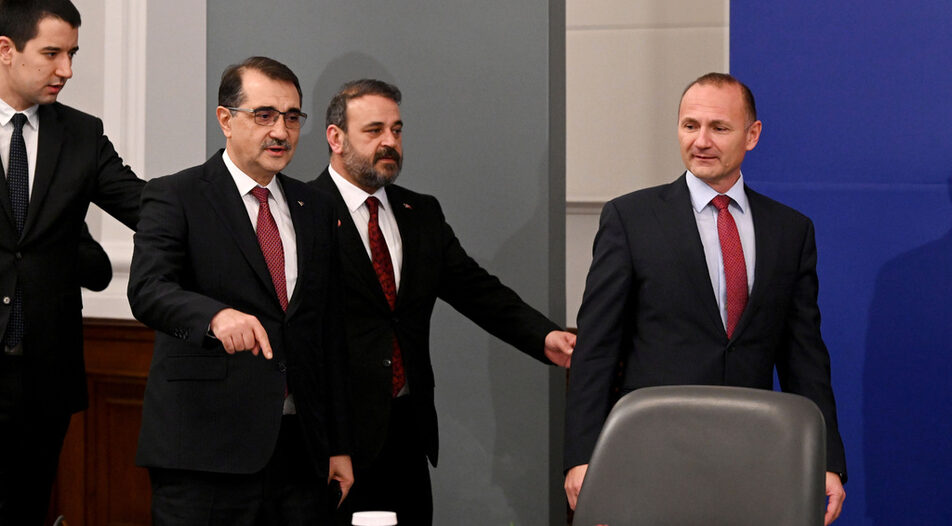]January 3rd saw an agreement signed in Sofia between Bulgarian gas supplier Bulgargaz and its Turkish equivalent Botash. It will remain in force for 13 years until 2036.
The contract involves an intersystem agreement that allows the Bulgarian gas supplier to use the Turkish gas infrastructure and an opportunity to import a capacity of 1.5 billion m3 per year. All quantities are likely to be liquefied natural gas (LNG).
The contract is a huge diplomatic success in the field of energy bearing in mind that Turkey has been closed to date for natural gas deals with EU countries.
Denkov receives second mandate
President Rumen Radev handed Nikolay Denkov from WCC the second mandate to form a government on Tuesday morning.
"The task is extremely difficult, even impossible," commented the nominee for prime minister upon receiving the mandate.
Nikolay Denkov invited parties in parliament to discuss the main goals for governing with the second mandate. However, BSP, a possible partner, declined and Bulgaria Rise expressed concerns about some of the priorities of a potential cabinet led by Denkov.
The only faction expressing any support was Democratic Bulgaria. GERB and DPS did not attend the meeting.
Gas price up by 23%
The price of natural gas in Bulgaria in January increased by nearly 23% compared to December of 2022. This emerged after an announcement by the energy regulator, which approved the new price for the regulated market. The fuel will now cost BGN 179.33 per MWh for January, while it was marked at BGN 146.09 per mWh in December.
This is the second consecutive month of growth in gas prices, after prices plummeted in October and November following record levels in September. The price of gas approved by the regulator is significantly lower than the BGN 204.14 originally stated by Bulgargaz.
]January 3rd saw an agreement signed in Sofia between Bulgarian gas supplier Bulgargaz and its Turkish equivalent Botash. It will remain in force for 13 years until 2036.
The contract involves an intersystem agreement that allows the Bulgarian gas supplier to use the Turkish gas infrastructure and an opportunity to import a capacity of 1.5 billion m3 per year. All quantities are likely to be liquefied natural gas (LNG).












